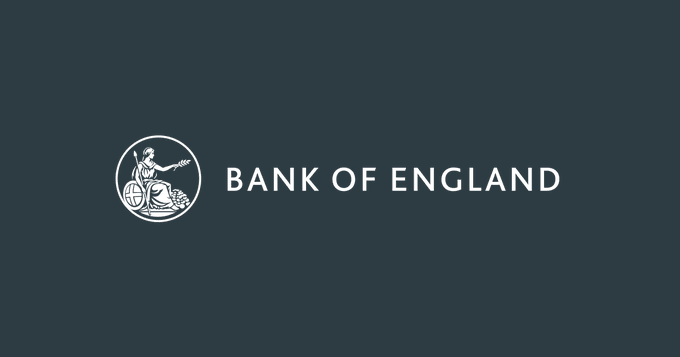The Bank of England (BOE) faces mounting pressure to cut interest rates in December following Thursday’s narrow 5 to 4 vote to hold the benchmark rate at 4 percent, with softening economic indicators and persistent inflation concerns dividing policymakers.
The Monetary Policy Committee (MPC) vote was tighter than economists expected, with most analysts predicting a 6 to 3 split in favor of holding rates unchanged. Four members, including deputy governors Sarah Breeden and Dave Ramsden alongside external members Swati Dhingra and Alan Taylor, supported an immediate quarter point reduction to 3.75 percent.
Governor Andrew Bailey voted to hold rates but signaled that upside risks to inflation have become less pressing, though he emphasized the value in waiting for further evidence before cutting. His comments suggested openness to policy easing if disinflation becomes more clearly established in the period ahead.
UK inflation has remained at 3.8 percent for three consecutive months through September, below the BOE’s forecast for a rise to 4 percent but still nearly double the 2 percent target and the highest among Group of Seven major advanced economies. The persistent elevation comes despite the BOE’s benchmark rate being double that of the European Central Bank.
Financial expert Nigel Green, Chief Executive Officer (CEO) of deVere Group, argues that accumulating evidence supports a December rate cut. He points to September’s lower than expected inflation, moderating wage growth, and weakening economic activity in the third quarter as indicators that the economy is losing momentum under current borrowing costs.
Interest rates have been cut five times since August 2024, when the MPC reduced the base rate from 5.25 percent, following a quarterly rhythm that has brought rates down to the current 4 percent level. However, Governor Bailey regularly notes that monetary policy is not on a predetermined path.
Breeden, voting against the majority for the first time, said upside risks to inflation had not materialized and that slack in the jobs market would continue weighing down pay growth. She expressed confidence that policy remains restrictive and that building slack justified an immediate cut.
The MPC assessment indicates that underlying disinflation continues, supported by the still restrictive stance of monetary policy and reflected in easing pay growth and services price inflation. Subdued economic growth and building slack in the labor market are underpinning this disinflation trend.
Markets are now pricing approximately 60 percent probability of a rate reduction at the next MPC meeting on December 18, with investors interpreting Bailey’s comments as signaling potential policy easing once more economic data becomes available. By then, the committee will have reviewed inflation and employment data for October and November, along with details of tax increases expected in Finance Minister Rachel Reeves’ budget on November 26.
Green emphasizes that maintaining rates at 4 percent despite softening demand signals will weigh heavily on households and small businesses over winter. He argues that mortgage renewals are squeezing disposable income while firms hold back on investment, creating lasting damage to productivity and growth the longer restrictive policy persists.
The deVere CEO contends that a modest 25 basis point cut in December would signal confidence that inflation is under control while helping stabilize consumer and corporate sentiment heading into 2026. He suggests this would align monetary and fiscal policy more effectively following the autumn budget.
The BOE forecast shows inflation remaining above its 2 percent target until the second quarter of 2027, though it projects inflation will be slightly lower then at 1.9 percent. The central bank also expressed concern that households might not use their high savings levels to increase spending.
Green stresses that the BOE’s credibility depends not only on defeating inflation but also on avoiding unnecessary economic damage. He argues that inflation represents yesterday’s challenge, while the current priority involves sustaining growth without reigniting price pressures.
The European Central Bank has signaled openness to rate cuts in early 2026, while the Federal Reserve has already slowed tightening and hinted that its next move is likely downward. Green warns that the UK risks falling out of sync if it maintains restrictive settings while other major economies pivot toward easing.
The committee’s policy discussions covered the extent to which disinflation was continuing, the degree of slack emerging in the economy, and whether these developments reflected the restrictive stance of monetary policy both currently and prospectively. Members continued taking different views on how wage moderation would feed through to lower services price inflation.
The narrow vote reveals growing divisions within the MPC as policymakers balance persistent inflation against mounting evidence of economic weakness. Green concludes that the BOE should use the next six weeks to prepare markets for a measured step in December, demonstrating recognition of the changing economic reality and readiness to act decisively.
Source: newsghana.com.gh











